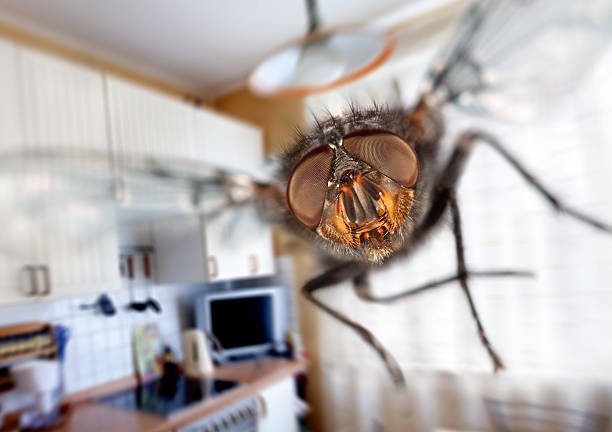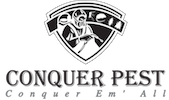Controlling Fly Pests: Tips for a Bug-Free Home in Singapore

In Singapore’s tropical climate, flies are a common and annoying pest that can invade homes, spreading diseases and creating a nuisance. To maintain a healthy and comfortable living environment, it is essential to control fly populations effectively. This comprehensive guide will provide tips and strategies for controlling fly pests in your home, with insights tailored to the unique conditions of Singapore. Whether you are looking for prevention techniques, natural remedies, or advanced pest control solutions, we have you covered.
Understanding Fly Behavior and Risks
Before delving into control methods, it is important to understand why flies are a problem and the risks they pose.
Types of Flies in Singapore
Several types of flies commonly invade homes in Singapore, including:
1. House Flies (Musca domestica): These are the most common flies and can carry over 100 different kinds of disease-causing germs.
2. Fruit Flies (Drosophila melanogaster): Attracted to ripe or rotting fruits and vegetables, they reproduce quickly and can be difficult to eliminate.
3. Drain Flies (Psychodidae): Often found near sinks and drains, they thrive in moist environments.
4. Blow Flies (Calliphoridae): Known for their metallic appearance, they are often found around decaying meat and garbage.
Health Risks
Flies can transmit various diseases, including:
● Salmonella
● E. coli
● Cholera
● Dysentery
● Tuberculosis
These diseases are often spread when flies land on food or surfaces that humans come into contact with. Controlling fly populations in your home is crucial for maintaining a healthy living environment.
Prevention: The First Line of Defense
The best way to control flies is to prevent them from entering your home in the first place. Here are some effective prevention strategies:
1. Maintain Cleanliness
Keeping your home clean is the most critical step in preventing flies. Here are some tips:
Clean Surfaces Regularly: Wipe down countertops, tables, and other surfaces regularly to remove food residues.
Proper Waste Disposal: Use trash cans with tight-fitting lids and empty them frequently.
Refrigerate Food: Store fruits, vegetables, and other perishables in the refrigerator.
Clean Up Spills Immediately: Any spilled food or drink should be cleaned up immediately to avoid attracting flies.
2. Seal Entry Points
Flies can enter your home through even the smallest openings. Ensure your home is well-sealed by:
Repairing Cracks and Gaps: Check windows, doors, and walls for cracks or gaps and seal them with caulk or weatherstripping.
Installing Screens: Use screens on windows and doors, and ensure they are in good repair.
Using Door Sweeps: Install door sweeps on exterior doors to eliminate gaps.
3. Manage Outdoor Areas
Flies often breed and thrive in outdoor areas before making their way inside. Manage these areas by:
Maintaining Your Yard: Keep your yard clean and free of decaying organic matter.
Proper Composting: If you compost, ensure it’s done correctly to avoid attracting flies.
Pet Waste Management: Clean up pet waste promptly, as it can attract flies.
Natural Remedies for Fly Control
If flies have already made their way into your home, natural remedies can be an effective first step in controlling them. Here are some natural methods to consider:
1. Essential Oils
Certain essential oils have fly-repellent properties. These include:
● Lavender Oil
● Eucalyptus Oil
● Peppermint Oil
● Lemongrass Oil
To use essential oils, mix a few drops with water in a spray bottle and spray around your home, particularly near windows and doors.
2. Vinegar and Dish Soap Trap
This simple trap is effective for capturing fruit flies:
Fill a bowl with apple cider vinegar and add a few drops of dish soap.
The vinegar attracts the flies, while the dish soap reduces the surface tension, causing them to drown.
3. Basil and Mint Plants
Planting basil and mint around your home can help repel flies. These plants emit scents that flies find unpleasant.
4. Homemade Fly Paper
You can create your own fly paper using the following method:
● Mix equal parts of sugar, honey, and water.
● Spread the mixture onto strips of brown paper or cardboard.
● Hang the strips in areas where flies are most active.
● Advanced Fly Control Methods
● When natural remedies are not enough, you may need to turn to more advanced fly control methods. Here are some effective options:
Insecticides
Insecticides can be an effective way to control fly populations, but they should be used with caution. Always follow the manufacturer’s instructions and consider the following types:
Residual Sprays: These sprays provide long-lasting protection and can be used around entry points and fly hotspots.
Space Sprays: These are used to treat large areas and are effective for immediate fly reduction.
Bait Traps: These traps use attractants combined with insecticides to lure and kill flies.
Fly Zappers
Fly zappers use ultraviolet light to attract flies, which are then killed by an electric grid. They are effective for controlling flies in both indoor and outdoor settings.
Fly Traps
Commercial fly traps are available in various forms, including sticky traps, bait traps, and light traps. These traps can be strategically placed around your home to capture and kill flies.
Professional Pest Control Services in Singapore
If fly infestations persist despite your best efforts, it may be time to call in professional pest control services. Pest control professionals in Singapore have access to advanced tools and treatments that can effectively eliminate fly populations. They can provide customized solutions tailored to the specific needs of your home and environment.
Benefits of Professional Pest Control
Expert Knowledge: Professionals have the expertise to identify the type of flies and the best treatment methods.
Advanced Treatments: Access to powerful, regulated pesticides and tools not available to the general public.
Long-Term Solutions: Implementation of long-term strategies to prevent future infestations.
Choosing the Right Pest Control Service
When selecting a pest control service in Singapore, consider the following:
Reputation: Look for companies with positive reviews and a strong reputation for effective service.
Certifications: Ensure the company is certified and adheres to Singapore’s pest control regulations.
Guarantee: Choose a service that offers a satisfaction guarantee or follow-up treatments if needed.
Conclusion
Controlling fly pests and maintaining a bug-free home in Singapore requires a combination of prevention, natural remedies, advanced control methods, and long-term strategies. By implementing the tips and techniques outlined in this guide, you can effectively reduce and eliminate fly populations in your home, creating a healthier and more comfortable living environment.
Remember, the key to successful fly control is consistency. Regular cleaning, proper waste management, and vigilance in sealing entry points will go a long way in keeping flies at bay. Should you encounter persistent fly problems, don’t hesitate to seek professional help to ensure your home remains fly-free.
For expert pest control services in Singapore, consider reaching out to reputable companies that can provide tailored solutions for your specific needs. With their help, you can enjoy a fly-free home all year round.


